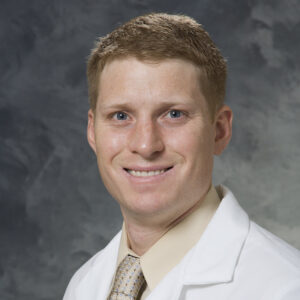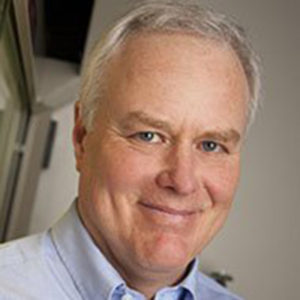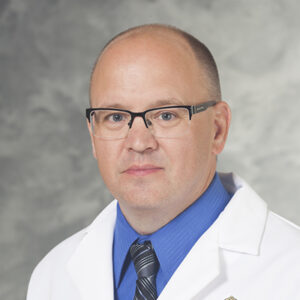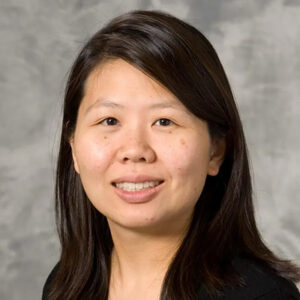Project 1: Zachary Morris | Jamey Weichert | Paul Harari
Project 2: David Beebe | Paul Harari
Project 3: Deric Wheeler | Justine Bruce
Project 1: Applied Science Leader

Zachary Morris, MD, PhD
Co-Leader, Project 1
Associate Professor, Department of Human Oncology
The efforts of Dr. Morris’s translational research laboratory focus on examining the mechanisms and pre-clinical testing of treatment approaches that combine radiation and molecular-targeted therapeutics to drive anti-tumor immune responses. His educational background is diverse and includes formal training in immunology, tumor cell biology, signal transduction, protein structural biology, biostatistics, clinical medicine, and early phase clinical trial development. He first conducted research as an undergraduate, working at Argonne National Laboratory over a four-year period. Subsequently, having earned a Rhodes Scholarship, he completed two Masters degrees at Oxford University and then an MD/PhD at Harvard Medical School where he trained under the mentorship of Prof. Andrea McClatchey. During his residency training in Radiation Oncology, he led three IRB-approved protocols for patient research including a prospective phase I/II clinical trial. At the same time, he conducted preclinical research as part of a collaboration that he spearheaded between the labs of Prof. Paul Sondel and Prof. Paul Harari. That research effort resulted in multiple first-author original research manuscripts and development of model systems that are now facilitating continued productivity in his own lab.
Through this training, he gained expertise in testing hypotheses using experimental approaches that are founded on robust in vivo studies in murine tumor models (syngeneic, genetically engineered, humanized, and immune suppressed) and augmented by ex vivo and in vitro approaches that include immuno-histopathology, cellular immune function assays, radio-sensitivity assays, flow cytometry, molecular biology, and protein biochemistry. This breadth and depth of research experience has enabled him to compete successfully for continuous research funding over the past five years including his selection as one of 11 recipients of the 2016 NIH Director’s Early Independence Award and more recently his selection as one of 12 members of the inaugural NIH Immuno-Oncology Translational Network (IOTN) and PI of a NIH Cancer Moonshot U01. As part of the latter award, he have taken on a role as co-chair of the NIH IOTN Radio-Immunology working group. While his primary focus is on the advancement of basic and translational research efforts in his laboratory, he continues to be active in clinical research, currently serving as PI for three early phase clinical trials at the UW Carbone Cancer Center. More recently, he has been recognized for his dedication to trainee mentorship and leadership, as reflected in his recent promotions to Program Director for the University of Wisconsin Bentson Translational Research Fellowship and Vice-Chair for the Department of Human Oncology.
Project 1: Basic Science Leader
 Jamey Weichert, PhD
Jamey Weichert, PhD
Co-leader, Project 1
Professor
Department of Radiology
Dr. Jamey Weichert is a professor (tenure) of Radiology and also holds an affiliate positions in Medical Physics and Pharmaceutics at the University of Wisconsin in Madison. Dr. Weichert received a Bachelor of Science degree in Chemistry from the University of Minnesota in 1980 and a doctoral in Medicinal Chemistry from The University of Michigan in 1985 under the direction of Dr. Raymond Counsell. He joined the faculty at the University of Wisconsin in 1998. In 2005, Dr. Weichert established the University’s Small Animal Imaging and Radiotherapy Facility (SAIRF) and still serves as it’s faculty director.
Dr. Weichert’s research interests focus on the design and development of cancer targeted molecular contrast, imaging, and therapeutic agents for a wide range of applications in diagnostic cancer imaging and radiotherapy. Dr. Weichert is an author on more than 80 peer-reviewed publications, a co-inventor on more than 50 issued and pending patents, and a co- investigator or principal investigator on several NIH-NCI and corporate grants (>$20M total). He is co-PI with Human Oncology colleague, Zach Morris, on the first ever awarded TRT P01 grant. Dr. Weichert recently won the Distinguished Investigator Award from the Academy for Radiology & Biomedical Imaging (2021) and the Harry Fisher Award for Excellence in Contrast Media Research, Contrast Media Research Society (2015). He serves as a reviewer for multiple journals and many NIH grant review study sections.
Project 1 and Project 2: Clinical Leader
 Paul Harari, MD
Paul Harari, MD
SPORE Director
Co-leader, Project 1 and Project 2
Director, Administrative Core
Professor and Chair, Department of Human Oncology
Dr. Harari is the Jack Fowler Professor and Chairman of the Department of Human Oncology and served for nine years as associate director of the UW Carbone Cancer Center (UWCCC). He serves as principal investigator for the Wisconsin Head and Neck SPORE, director of the Admin Core and co-leader for Project 2. Dr. Harari’s primary clinical and laboratory research efforts are focused on improving treatment outcome for patients with head and neck cancer (HNC). Areas of particular research emphasis include the interaction of molecular growth inhibitors combined with radiation and the use of conformal radiation treatment techniques to diminish normal tissue toxicity. Dr. Harari has served on the Radiation Therapy Oncology Group (RTOG) HNC Committee for 20 years and as PI or co-PI for a series of national and international HNC trials. His laboratory research program centers on HNC biology, and he has served as PI for NIH R29 and R01 laboratory research grants investigating HNC response and resistance mechanisms to radiation and molecular targeting agents, with particular focus on EGFR pathway inhibitors. In Project 2 of the HN SPORE, Dr. Harari will investigate a unique imaging and anti-cancer agent developed at the UW (CLR1404). Following detailed examination in animal models, a translational research strategy to explore the role of CLR1404 in combination with external beam radiation in locally recurrent HNC patients, will be carried out.
Dr. Harari is a seasoned administrative leader serving as chair of the Department of Human Oncology since 2007 and associate director of Translational Research for the UWCCC from 2007 until 2016. He served as director of the UW Radiation Oncology Residency Training Program from 1997 until 2007, chairman of the ASTRO Education Committee from 2004 until 2008 and chairman of the first ASTRO/ASCO/AHNS H&N Cancer Symposium in 2007. He currently serves on the ASTRO Board of Directors and is president of ASTRO for 2017. He is devoted to facilitating interactions between basic, translational and clinical cancer researchers and is deeply committed to the leadership of multidisciplinary research teams.
Project 2: Basic Science Leader
 David Beebe, PhD
David Beebe, PhD
Basic Co-leader of Project 2
John D. MacArthur Professor of Pathology & Laboratory Medicine
Claude Bernard Professor of Biomedical Engineering
While Dr. Beebe originally trained in engineering, he completed a 5 year “re-training” in cell biology via an NIH K25 award (2004-09) which transitioned his lab to more biology and medically focused work. This retraining was cell biology/cancer focused and led me to co-lead the Tumor Microenvironment Program within the UW Carbone Cancer Center from 2012-17. Dr. Beebe’s lab is now focused on an integrated research process that works to match unmet biological and clinical needs with appropriate technology development and adaptation. The work has focused on building organotypic models of the tissue microenvironment, with a focus on head and neck cancer, and applying these models to understand the complex biology and response to therapy of cancer and, more recently, infectious disease.
Project 3: Basic Science Leader
 Deric Wheeler, PhD
Deric Wheeler, PhD
Co-leader of Project 3
Professor, Department of Human Oncology
Dr. Wheeler is a tenured faculty researcher in the Department of Human Oncology at UW–Madison, where he is a member of the UW Carbone Cancer Center. His laboratory focuses on resistance to molecularly targeting agents and methods for overcoming this resistance. Further, his laboratory focuses on the identification of novel targets in head and neck, lung and breast cancer. His expertise includes cell biology, molecular biology, mouse models of cancer, signal transduction, antibody-based therapies of cancer and translational cancer therapeutics. In particular, his research focuses on combinatorial antibody based therapies to overcome resistance to cancer therapeutics. In recently published work, Dr. Wheeler’s laboratory has identified the receptor tyrosine kinase AXL as a highly promising molecular target in head and neck cancer, the focus of Project 4.
Project 3: Clinical Leader
 Justine Yang Bruce, MD
Justine Yang Bruce, MD
Co-leader of Project 3
Associate Professor, Department of Medicine, Hematology/Oncology
Dr. Bruce is an Associate Professor of medicine, division of hematology/oncology at the University of Wisconsin. Her research career has focused primarily on drug development by translating promising new cancer drugs into early phase clinical trials. She has extensive experience in designing, developing, and leading innovative early phase clinical trials that bring new compounds into treatment of patients with advanced solid malignancies as well as organ-specific malignancies, including head and neck cancers. As a clinician scientist, she understands the importance of utilizing novel biomarkers and other correlative studies as a way to evaluate and test novel agents during a clinical trial. Dr. Bruce serves as the principal investigator (PI) of both investigator-initiated early phase clinical trials developed through the Wisconsin Head and Neck SPORE grant, which utilizes research discovered in the basic science laboratories, and applying the novel science and biospecimen acquisition in the clinical setting. Since joining the UW HN SPORE team, Dr. Bruce has been integral in linking scientists with clinicians to provide fresh head and neck cancer tissue samples.
Dr. Bruce has served as the PI or Study Chair of multiple investigator-initiated trials in clinical oncology: She has also served as the PI for 18 industry-sponsored clinical trials as of 2023: 6 focusing on head and neck cancers, 3 phase I studies, and 9 focusing on prostate cancer. Dr. Bruce also serves as chair for the Protocol Review and Monitoring Committee, which conducts the scientific review of all cancer related clinical trials at the University of Wisconsin Carbone Cancer Center. She serves on the NCCN panel for the Head and Neck Cancer as well as the Adult Cancer Pain to develop national guidelines for treatment of these patients. She is a member of the head and neck working groups within the Alliance for Clinical Trials, and ECOG, as well as a member of the NCI Head and Neck steering committee.